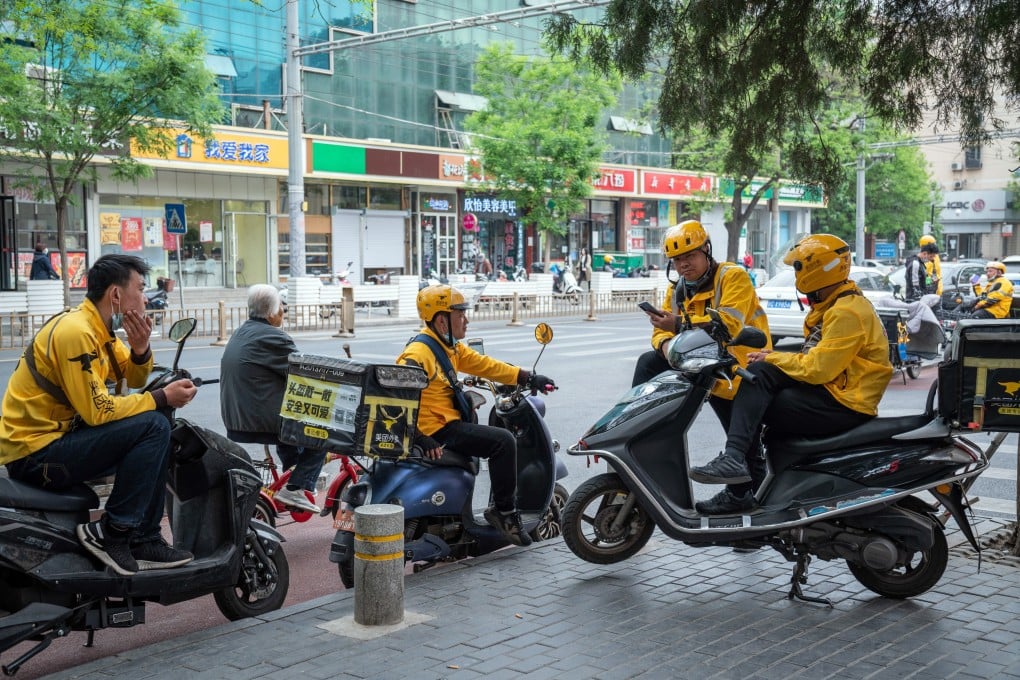Advertisement
China’s left-behind gig workers: as Big Tech pushes for profit, labour conditions show little sign of improvement
- Many of China’s gig workers move to the big city to seek a better life, only to find increased hardship
- By outsourcing contractual obligations, Big Tech on-demand platforms can skirt the costs of insuring their gig workers
Reading Time:5 minutes
Why you can trust SCMP
1

After a long day on the back of his electric bike, Cui Xuedong can be found singing nostalgic 90s love songs from a karaoke stall he built himself, complete with microphone and amplifier.
“I get worn out during the day and this is my way of relaxing,” said the 52-year-old, still wearing his yellow helmet and vest emblazoned with logo of delivery services giant Meituan.
Cui came to Beijing six years ago from the landlocked province of Hunan, in the South Central China region, seeking better job opportunities.
Advertisement
From 6am to 4pm, he works as a janitor, earning about 5,000 yuan (US$780) a month. During lunch breaks and in the evenings, Cui uses his electric bike to deliver food orders, earning about an extra 160 yuan a day by delivering around 40 orders.
“We are workers at the bottom of society,” Cui said. “But this is good money [for me].”
Advertisement
Cui is just one of China’s 200 million gig workers for the country’s internet platforms – including on-demand services providers Meituan and Ele.me, and ride-hailing companies like Didi Chuxing – many of whom left poorer hometowns to seek a better life in the big cities.
Advertisement
Select Voice
Select Speed
1.00x